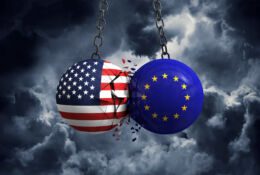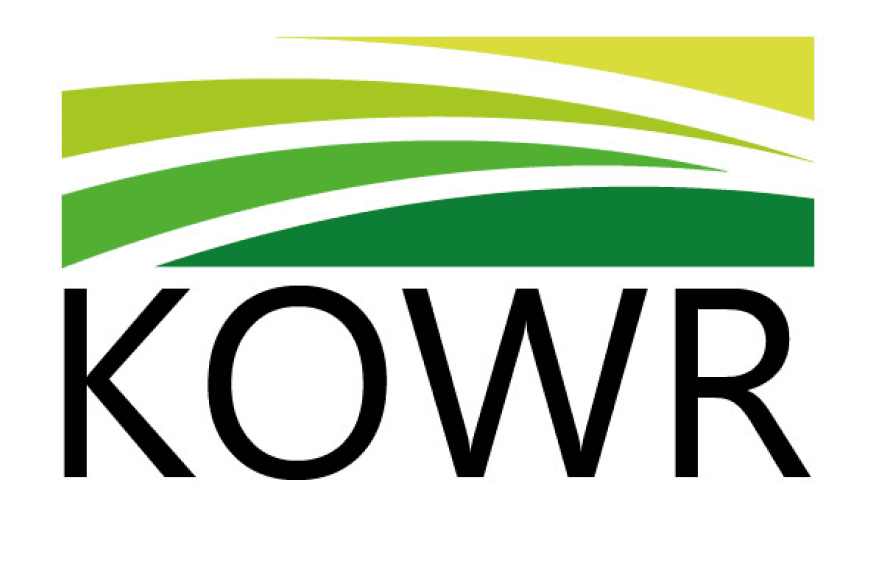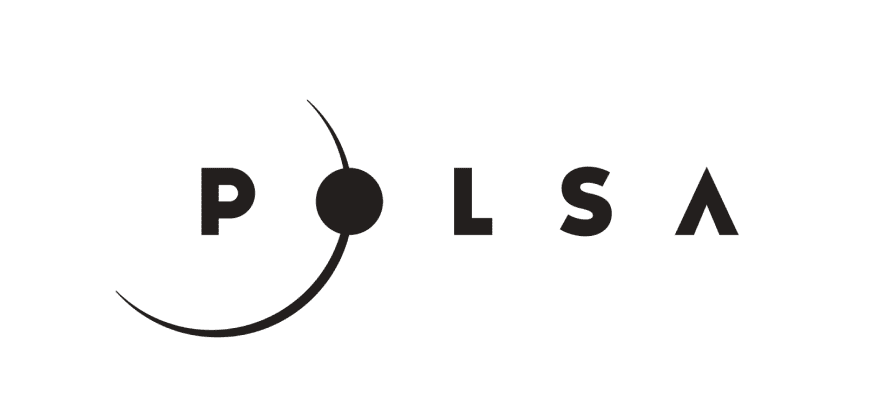Poland’s Hydrogen Strategy: A Green Future
17.01.2024
In recent years, Poland has been intensively developing its hydrogen strategy, seeing in this new technology the potential for energy transition and the achievement of sustainable development goals. Hydrogen, as an energy carrier, is gaining popularity all over the world, and Poland wants to use its natural resources, technological innovations and research potential to accelerate this process.
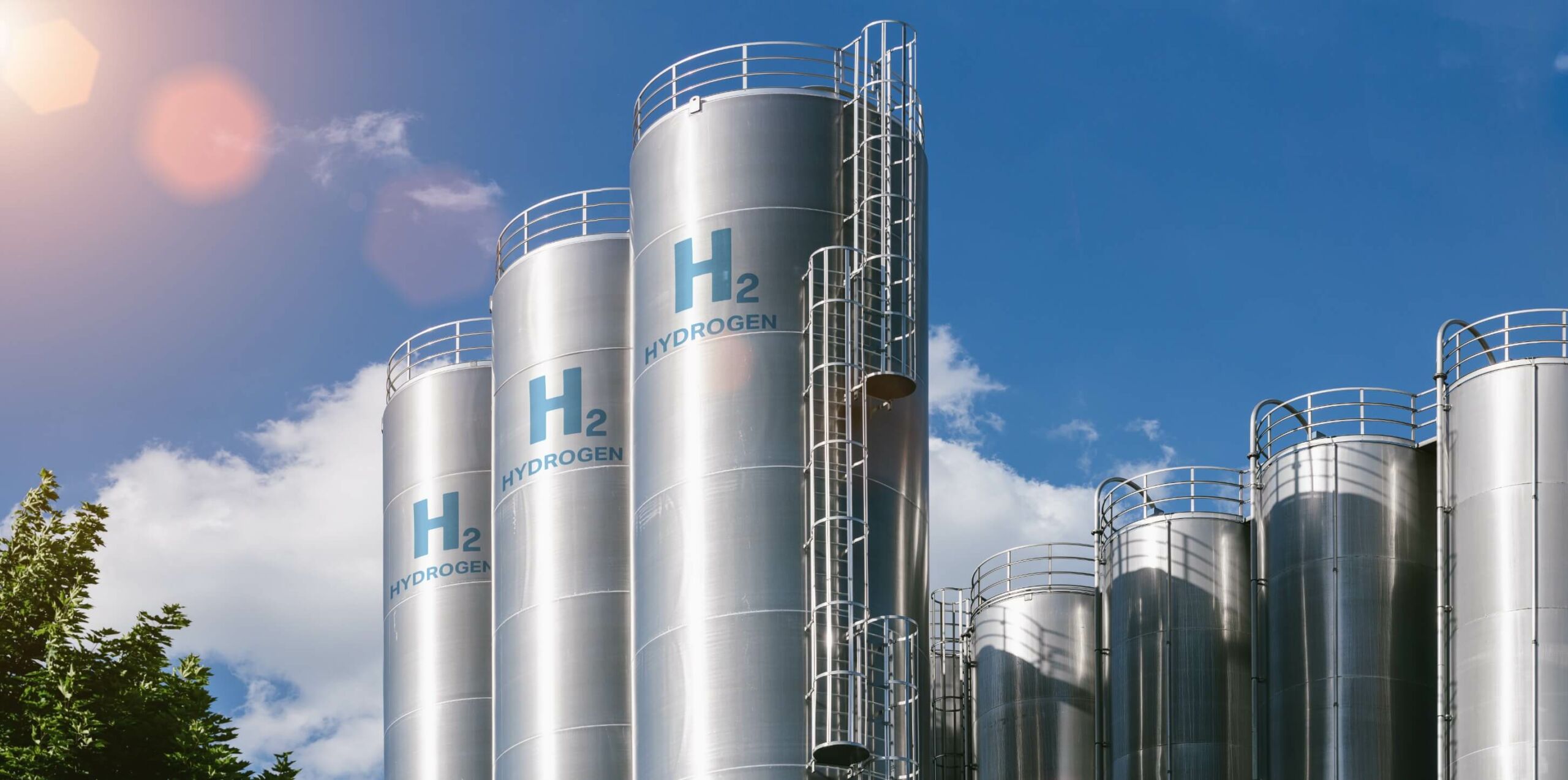
In 2022, global demand for hydrogen was 95 million tonnes, of which just over 1 million tonnes was low-carbon hydrogen. According to the latest forecasts, demand for low-carbon hydrogen is expected to increase to 400 million tonnes by 2050. In 2022, the European Union produced 7.5 million tonnes of hydrogen, and Poland is one of the leaders in the production of this raw material – it produces about 1.3 million tonnes per year (over 13 per cent in the EU), which puts it just behind Germany and the Netherlands.
Why hydrogen?
Hydrogen is one of the most promising energy carriers that can play a key role in the transformation of the energy sector. In the Polish economy, it would primarily act as an energy storage facility, enabling faster achievement of climate neutrality. It is also crucial to decarbonise energy-intensive sectors of the economy, where electrification of processes is economically unviable or even impossible.
Poland’s hydrogen plan assumes the creation of a value chain covering the construction of new renewable energy sources (RES) capacity, production and transport of hydrogen, up to its distribution and end use. The production of low-carbon and renewable hydrogen will be supported, and the production of hydrogen using nuclear energy is also being considered in the future.
Poland needs to increase investment in hydrogen research to keep up with the growing importance of this sector in the international arena, especially regarding electrolysis using renewable energy sources. In 2022, only 3.1 per cent of public expenditure on energy research in Poland was related to hydrogen and fuel cell technologies, while in other IEA member states this percentage was over 12 per cent
– comments Marcelina Pilszyk, an analyst from the PIE Energy and Climate Team.
Poland’s Hydrogen Strategy
Poland’s Hydrogen Strategy, adopted in 2021, fits perfectly into the context of international and national strategic documents. First of all, it is in line with European Union initiatives, such as the EU Hydrogen Strategy and the European Green Deal. In addition, it refers to international climate agreements, including the Paris Agreement, which oblige Poland to take action to reduce greenhouse gas emissions.
As part of the National strategies, Poland’s Hydrogen Strategy fits perfectly into the assumptions of the “Strategy for Responsible Development until 2020 (with the perspective of 2030)”. In particular, it supports the objectives of sustainable economic growth based on knowledge, innovation and organisational excellence.
In the international context, particular emphasis is placed on the decarbonisation of the economy and the use of low-carbon and especially renewable hydrogen. Poland’s strategy accurately classifies hydrogen based on the level of emissions of its production, which is in line with global trends and standards for sustainable development.
The strategy includes six objectives that address three key end-use areas such as energy, industry and transport.
The main objectives:
- Implementation of hydrogen technologies in the energy and heating sectors.
- The use of hydrogen as an alternative fuel in transport.
- Support for the decarbonisation of industry.
- Hydrogen production in new installations.
- Efficient and safe transmission, distribution and storage of hydrogen.
- Creating a stable regulatory environment.
Objectives set out in Poland’s Hydrogen Stratergy
Source: PIE study based on Poland’s Hydrogen Strategy
Hydrogen valleys
The basis Poland’s Hydrogen Strategy is the development of the Hydrogen Valley Innovation Ecosystem, where each valley is to be a cluster of as many elements of the hydrogen economy value chain as possible in a specific location. Hydrogen valleys are to move towards self-sufficiency of the hydrogen economy system. Nevertheless, for its effective functioning, it is necessary to educate qualified specialists who will be able to work in this dynamically developing sector.
Strengthening competences related to the hydrogen economy is to be implemented through close cooperation with Universities. In addition, it is planned to introduce support programs aimed at retraining workers from mining areas, adapting their skills to the needs of the hydrogen sector. The Government also intends to initiate educational campaigns to raise public awareness of hydrogen-related technologies.
In the long term, Poland’s Hydrogen Strategy may bring benefits not only to the country’s economy, but also to the environment. The introduction of hydrogen into the energy mix will allow Poland to gain energy independence, reduce greenhouse gas emissions and contribute to global efforts to combat climate change.
Hydrogen Valleys in Poland
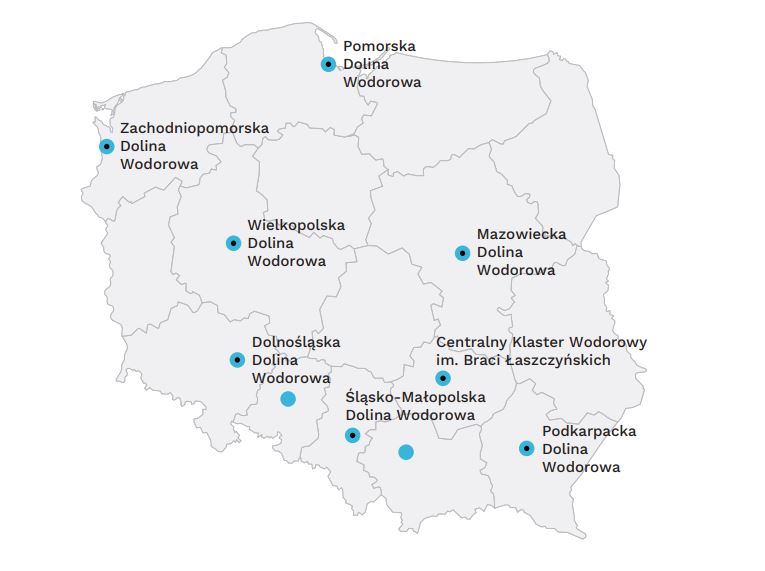
To sum up, Poland’s Hydrogen Strategy is an ambitious plan that, by combining natural resources, technological innovation and international cooperation, can contribute to the creation of a green, sustainable future for the country and contribute to the global energy transition.
Source: Wyścig po Wodór. Państwa i ich strategie wodorowe – The Polish Economic Institute
Spis treściTable of contents
- Everything
- News (263)
- Events (160)
- Get Support (82)
- Polish companies (1025)
-

GETSIX POLSKA SPÓŁKA Z OGRANICZONĄ ODPOWIEDZIALNOŚCIĄ
Business servicesShow allShow more Show lessTax services, Accounting and Payroll – Professional outsourcing services in Poland. getsix® offers accounting, bookkeeping, payroll and tax services with a particular focus on the needs of medium-sized and large companies. For foreign investors in Poland we offer support in all activities related to setting up a branch or a company and running its accounting and payroll. We operate 6 offices throughout Poland, supported by a professional team fluent in both English and German.

us4us sp. z o.o.
Other goodsShow allShow more Show lessUS4US is a Polish hi-tech company specializing in advanced, customizable ultrasound systems for medical and industrial use. Our open, GPU-accelerated platforms support real-time imaging, raw RF acquisition, and integration with Python, MATLAB, and C/C++. Dedicated for research and OEMs, US4US enables rapid development of new imaging solutions through high-speed data streaming and flexible, software-defined ultrasound technology.
 Article
ArticlePoland drives the Startup revolution in Central and Eastern Europe
Polish companies rank among those with the highest potential to become unicorns

Biuro Rachunkowe KZ
Business servicesShow allShow more Show lessWe specialize in providing comprehensive accounting, tax, and HR and payroll services for entrepreneurs. We support both sole proprietors and companies, tailoring our services to meet each client’s specific needs. Our approach is grounded in current legal and financial knowledge, supported by modern solutions that ensure safety, efficiency, and peace of mind in business operations.
-
 Article
ArticlePoland drives the Startup revolution in Central and Eastern Europe
Polish companies rank among those with the highest potential to become unicorns
 Article
ArticleTripling high-tech exports in the last 15 years
In 2024, exports of high-tech products from Poland reached EUR 37.25 bln, up 10.1% year-on-year
-
 Event
EventAGRO SHOW 2025
International Exhibition – Agro Show 2025 will be held between the 19th-21st September 2025, in Bedn…
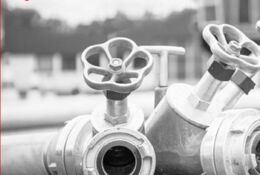 Event
EventKIELCE IFRE-EXPO 2025
The 5th International Trade Fair of Fire Brigade and Rescue Services Equipment will be held between …
-
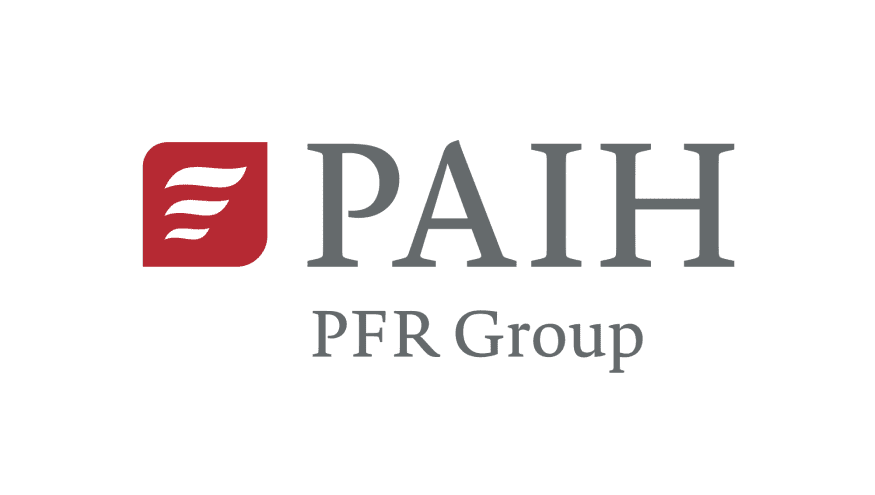 Institution
InstitutionPolish Investment and Trade Agency (PAIH)
The Polish Investment and Trade Agency (PAIH) is the partner of first-resort for entrepreneurs when …
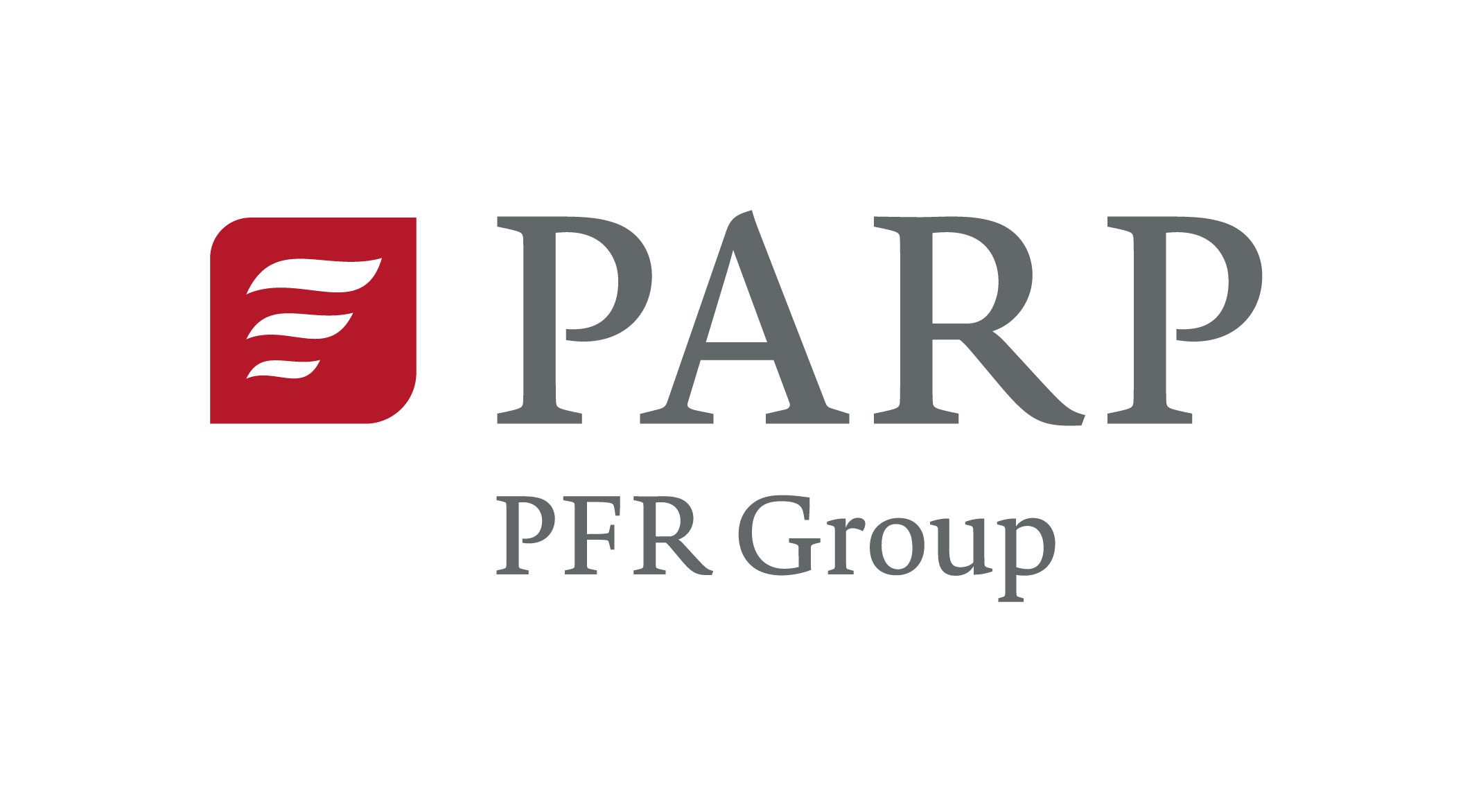 Institution
InstitutionPolish Agency for Enterprise Development (PARP)
Polish Agency for Enterprise Development (PARP) mission is an implementation of economical developme…
-

GETSIX POLSKA SPÓŁKA Z OGRANICZONĄ ODPOWIEDZIALNOŚCIĄ
Business servicesShow allShow more Show lessTax services, Accounting and Payroll – Professional outsourcing services in Poland. getsix® offers accounting, bookkeeping, payroll and tax services with a particular focus on the needs of medium-sized and large companies. For foreign investors in Poland we offer support in all activities related to setting up a branch or a company and running its accounting and payroll. We operate 6 offices throughout Poland, supported by a professional team fluent in both English and German.

us4us sp. z o.o.
Other goodsShow allShow more Show lessUS4US is a Polish hi-tech company specializing in advanced, customizable ultrasound systems for medical and industrial use. Our open, GPU-accelerated platforms support real-time imaging, raw RF acquisition, and integration with Python, MATLAB, and C/C++. Dedicated for research and OEMs, US4US enables rapid development of new imaging solutions through high-speed data streaming and flexible, software-defined ultrasound technology.

Biuro Rachunkowe KZ
Business servicesShow allShow more Show lessWe specialize in providing comprehensive accounting, tax, and HR and payroll services for entrepreneurs. We support both sole proprietors and companies, tailoring our services to meet each client’s specific needs. Our approach is grounded in current legal and financial knowledge, supported by modern solutions that ensure safety, efficiency, and peace of mind in business operations.
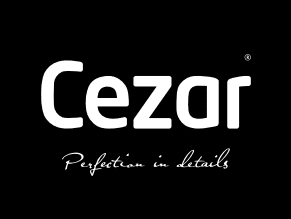
CEZAR PRZEDSIĘBIORSTWO PRODUKCYJNE DARIUSZ BOGDAN NIEWIŃSKI
Renovation and construction materialsShow allShow more Show lessCezar specializes in the production and sale of skirting boards, profiles, tile and terracotta angles, as well as wall panels and roof soffits. They also offer mounting accessories and decorative stucco. Additionally, they provide DIY profiles.
The Export Promotion Portal uses cookies to make it easier for users to use the website and for statistical purposes. If you do not block these files, you agree to their use and saving in the memory of your computer or other device. Remember that you can change your browser settings to block the storage of cookies. More information can be found in Privacy Policy and Terms and conditions.

